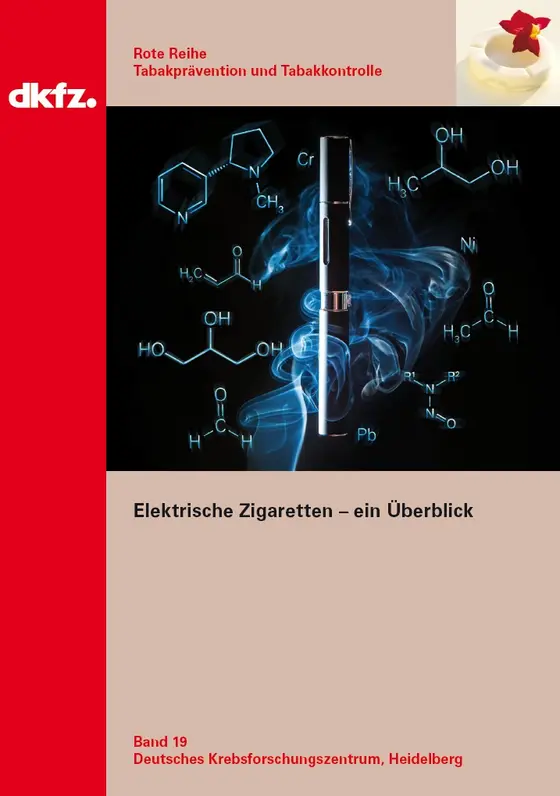Due to their nicotine content, existing product flaws and their use as a cigarette replacement, the German Cancer Research Center (Deutsches Krebsforschungszentrum, DKFZ) recommends classifying electronic cigarettes (e-cigarettes) as medicinal products in the revised EU Directive on Tobacco Products, as proposed by the European Commission. “Consumers should be able to trust that a product is safe and not harmful to health – and this is not the case with electronic cigarettes," says Dr. Martina Pötschke-Langer, head of the Unit Cancer Prevention and the WHO Collaborating Centre for Tobacco Control at DKFZ. At present, consumers have only a vague idea of what they are consuming with e-cigarettes. It is not uncommon for nicotine content to be declared inaccurately or even falsely. Depending on the device, the efficiency of nicotine delivery into the aerosol inhaled may differ considerably, which may lead to overdose and even to poisoning symptoms. The liquids used in e-cigarettes contain ingredients which may cause airway irritations and allergic reactions. The aerosol of some liquids contains carcinogenic substances such as formaldehyde, acetaldehyde, acrolein, nickel and chromium.
Electronic cigarettes are currently used predominantly by smokers intending to cut down or quit smoking. Although available data show that electronic cigarettes can relieve withdrawal symptoms, it has not yet been scientifically proven whether they help achieve sustained smoking cessation. A lot of research still needs to be done on e-cigarettes to evaluate product quality, ingredients, health consequences and efficacy of the products as smoking cessation aids. There is an urgent need for appropriate scientific studies to ensure that consumers get a reliable product. “The electronic cigarette, which contains addictive nicotine, should only be approved after detailed evaluation of product quality, effects and side effects and exclusively for smokers looking for a less harmful alternative to smoking or a smoking cessation aid," says Martina Pötschke-Langer.
The Federation of German Consumer Organisations (vzbv) also calls for appropriate regulation of electronic cigarettes to protect consumers. “Selling e-cigarettes as lifestyle products trivializes them. Misleading marketing and misinformation cannot be excluded. This makes it impossible for consumers to assess health risks. We need reliable product information and control mechanisms," says Ilona Köster-Steinebach, health expert at vzbv. She continues that product safety must be ensured and product information must clearly declare health risks and ingredients. Moreover, youth and non-smokers must be prevented from using e-cigarettes as a gateway product to smoking. “E-cigarettes should only be allowed to be offered for tobacco cessation– and the only way to achieve this is by classifying them as medicinal products," says Köster-Steinebach.
The publication is here available for download or as a printed booklet at the Press Office of DKFZ.



